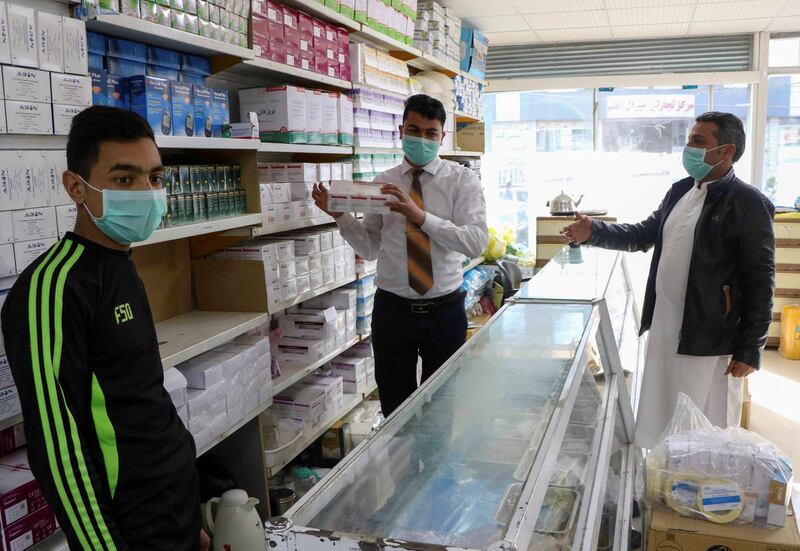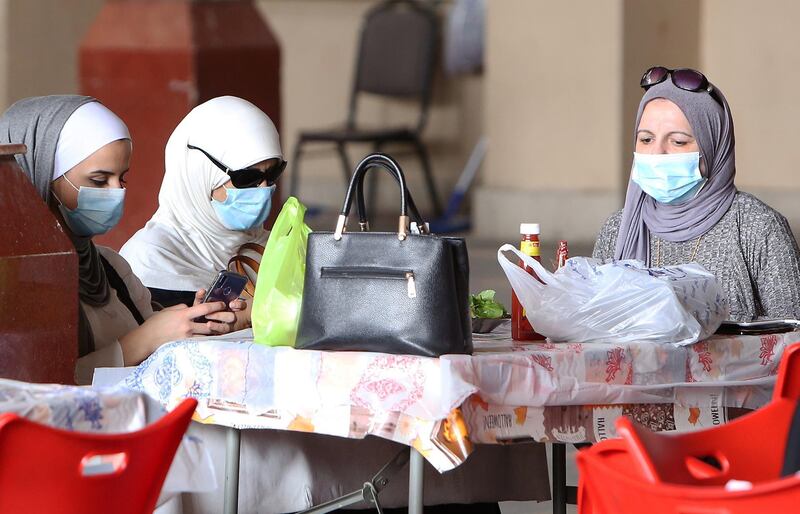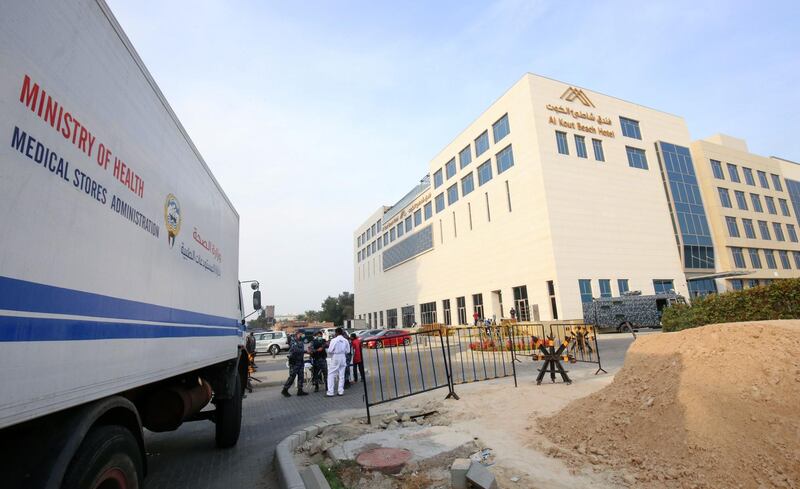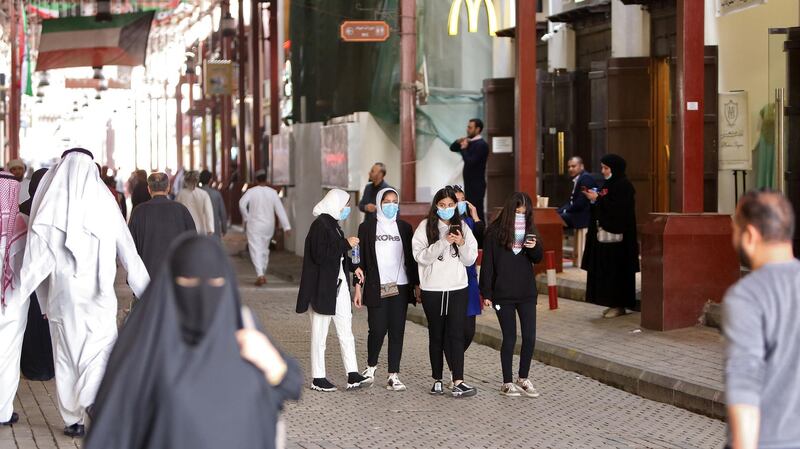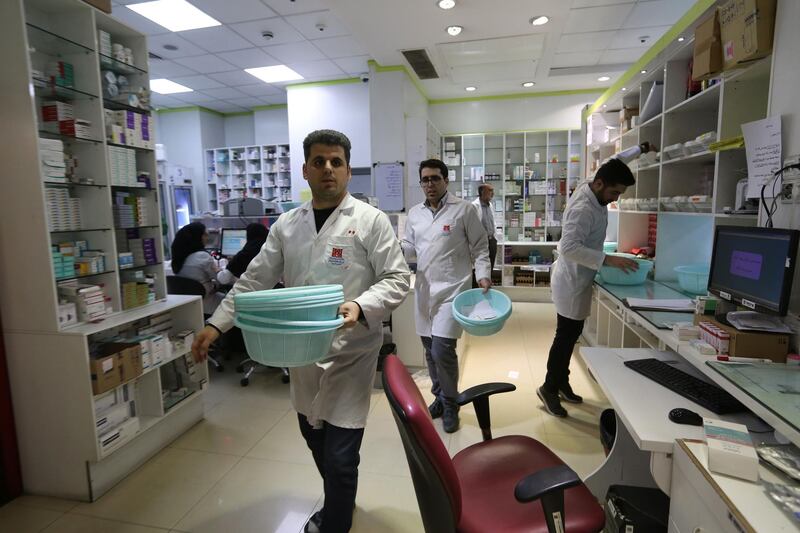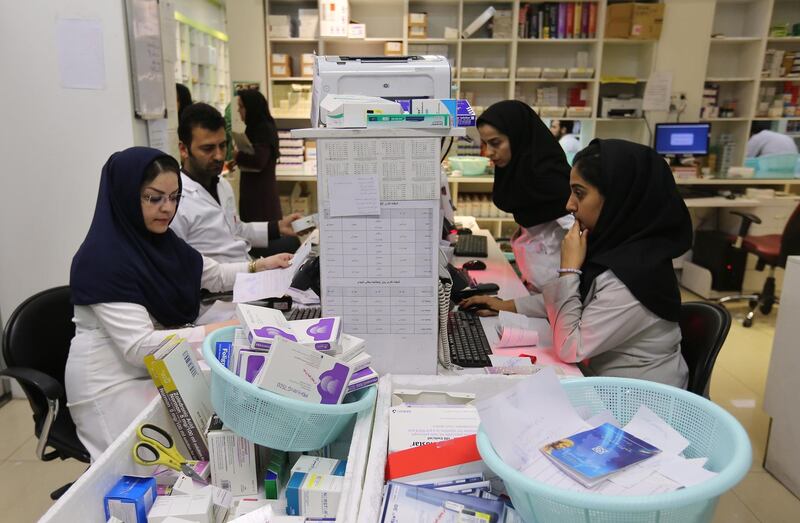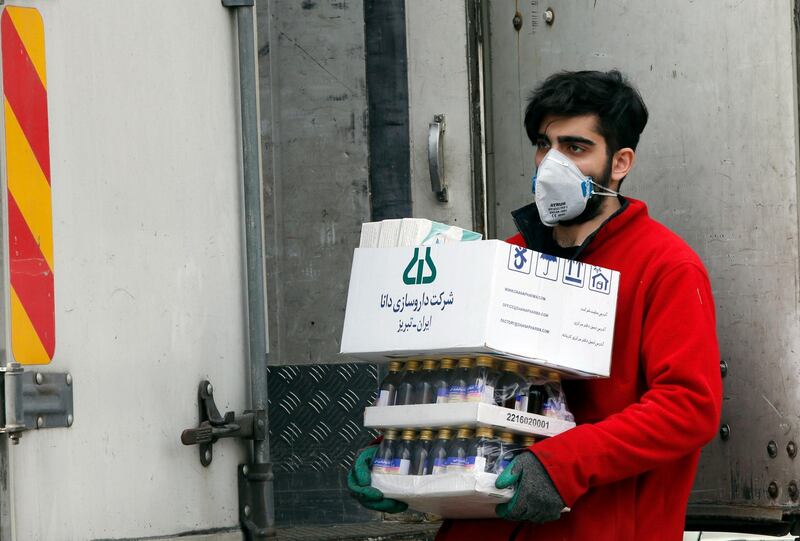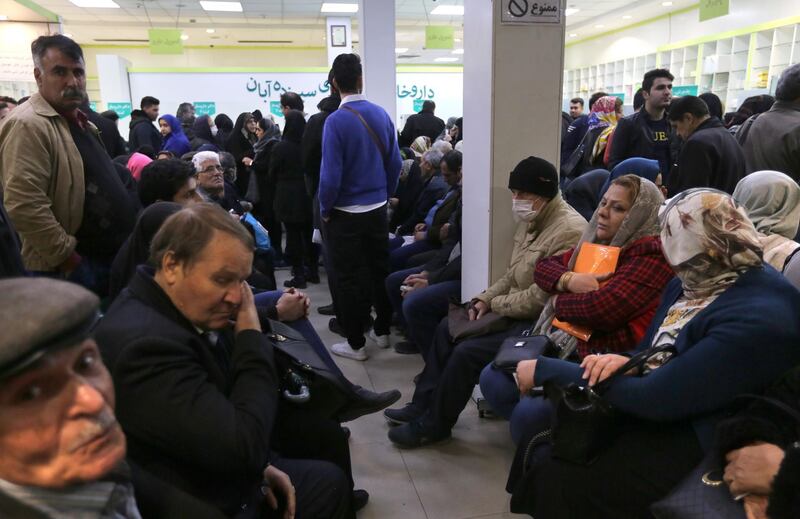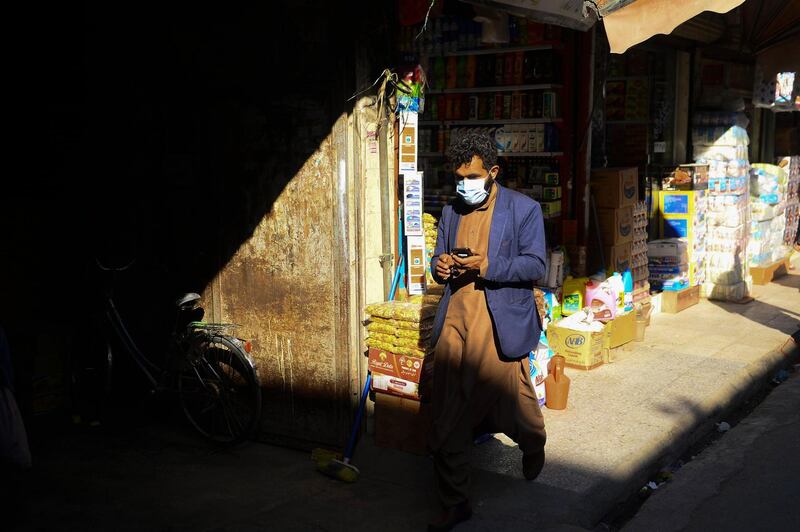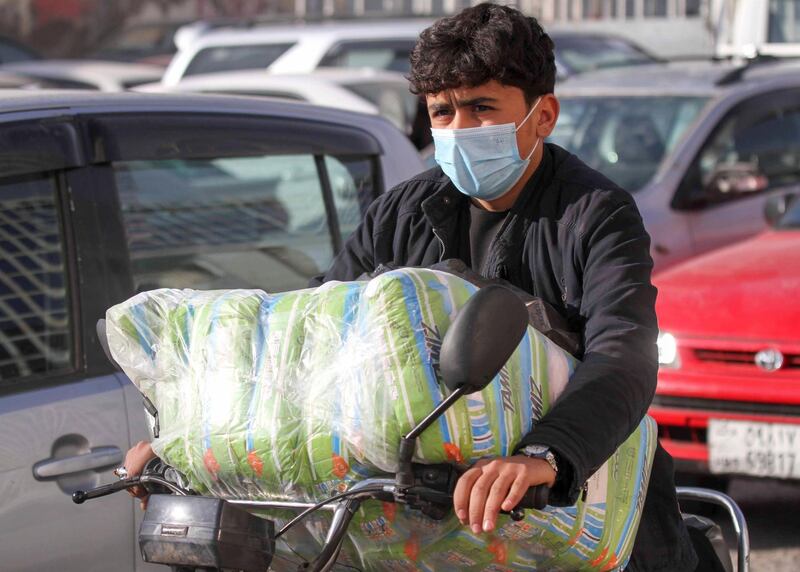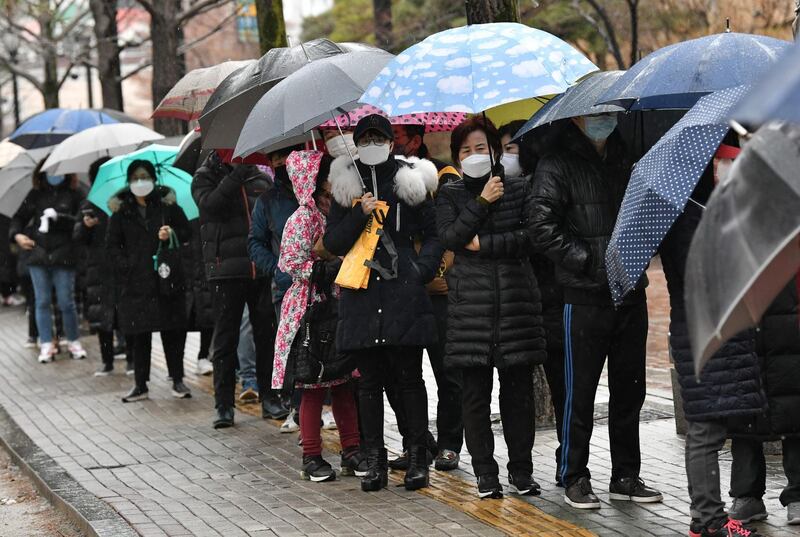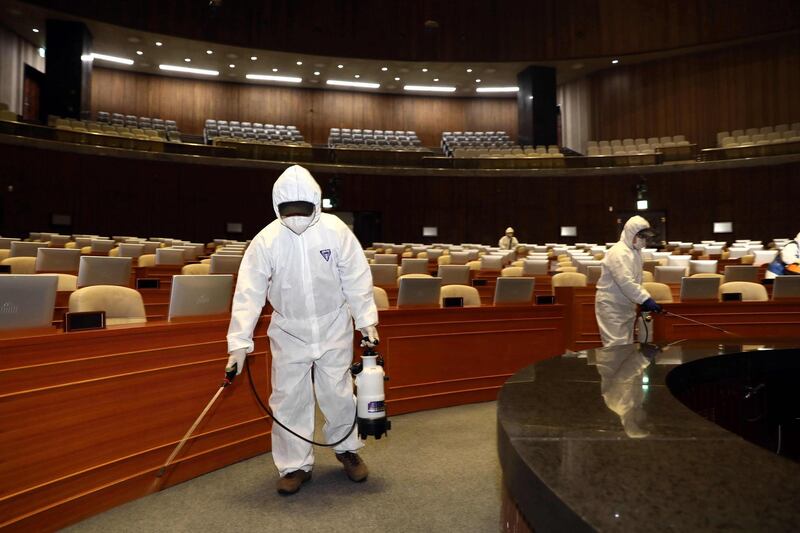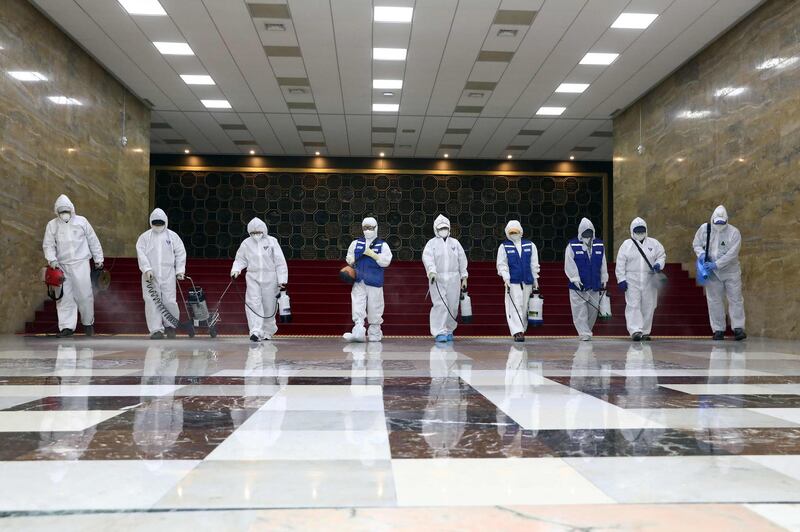Dubai's doctors have been told to expand checks on potential coronavirus patients.
Clinics and hospitals should test patients with severe chest infections for Covid-19, even if they have no history of travel to an infection hot spot and no known contact with a sufferer.
Hospitals will also collect three samples from suspected patients for virus detection as opposed to one.
The advice, issued by the Dubai Health Authority in a public circular on Monday, is an update from previous guidelines, which required either of the risk factors to test patients.
The number of hotspot countries now include China, Hong Kong, South Korea, Japan, Singapore and Italy.
Anyone who has travelled to these countries and has a serious chest infection, or has been in contact with a suspect in the past 28 days, must visit a hospital. Previously, it was a 14-day window.
New developments suggest coronavirus incubation could be longer than 14 days, leading to the change.
Pulmonolgists said the longer duration could be partly because patients can remain infectious for up to 28 days, which explains the slow recovery rate so far.
Under the new guidelines, issued to all health facilities on Monday, doctors must isolate and take swab samples from all patients suffering from a “severe acute respiratory infection” if no other lab test can explain their illness.
A severe acute respiratory infection is an illness of recent onset (within 10 days), with a cough and a history of fever above 38C, requiring hospitalisation.
DHA said the advice was in line with the latest World Health Organisation standards.
Doctors must continue to test people for Covid-19 who have symptoms of an upper or lower respiratory symptoms, with or without a fever, and with known risk factors, under the guidelines.
Of the 80,249 confirmed cases around the world, just 27,768 have recovered and 2,706 have died, leaving almost 50,000 people still infected.
In the UAE, there have been 13 confirmed cases, the first four of which were detected in late January. There have been three full recoveries.
“The recovery rate is really very slow,” said Dr Sukhant Bagdia, a specialist in pulmonology at NMC Royal Hospital in Dubai.
“So despite some patients having mild illness, and maybe some patients are even asymptomatic, they still have a longer period where they test positive for the virus.”
This increases the risk of people transmitting the virus, making their isolation important.
“That’s why they kept the duration to 28 days,” he said.
Coronavirus: What is a pandemic?

Dr Bagdia said the length of Covid-19 infection depends on an individual’s immune system.
“If a person has a very strong immunity, then probably the virus is killed quite quickly and the period of infection is shorter,” he said.
If a person’s immune system is weak, it may take longer to recover.
Anyone suspected of carrying the virus should be admitted and isolated, with precautions taken to prevent “contact and airborne” spread, said the DHA.
The patient should be kept in a quarantine room to contain the infection.
Samples must be taken from the nose, throat and sputum and should be sent to the government-run Latifa Hospital for testing.
Dr Bagdia said treating all serious respiratory infections as possible Covid-19 cases was important.
Severe respiratory infections usually require intubation. This exposes healthcare workers as the virus can spread through the air when the tube is inserted into the throat, making airborne precautions important, he said.
“It is better for these cases who could be a potential source of spread to identify if they are negative also. It’s good to include a wider aspect. We may get a lot of cases which will be negative, but that’s for the good.”
Symptoms of Covid-19 include fever, coughing, shortness of breath or difficulty in breathing.
Chills, body aches, a sore throat, headache, diarrhoea, nausea or vomiting and a runny nose can also be early symptoms.
